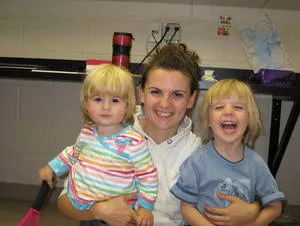Pauline Pan

I graduated from the University of Toronto with a B.Sc. in Psychology in 2008. Unsure of my academic and vocational directions, I was fortunate in coming across Dr. Fleming’s research, and began to work in her lab as a research assistant in August 2008. For three years, I worked on various projects involving maternal care in both humans and rats, studying various topics such as postpartum depression, pre-natal vitamin D deficiencies, and artificial rearing, just to name a few. In doing so, I found that I had a passion and curiosity for research in the field of neuroscience, and decided to pursue graduate studies. In September 2011, I began my M.Sc. in the department of Cell and Systems Biology with Dr. Patrick McGowan and Dr. Fleming.
I have a strong interest in the early life environment, particularly the effects of parental care on offspring development. Currently, I am working on my thesis project, in which I hope to examine how differential maternal care received by siblings in the same family affect their neural development in an epigenetic way. Specifically, I am looking to investigate the effects of unequal maternal care on the hypothalamus-pituitary-adrenal stress axis and maternal circuit in rats. By focusing on gene expression and DNA methylation of two candidate genes, Nr1c3 (glucocorticoid receptor gene) and Esr-1 (estrogen receptor alpha gene), I hope to better understand the mechanisms through which early maternal care affects the areas of the rat brain implicated in the stress response and maternal behaviour.
Kathleen Wonch

Born and raised in beautiful British Columbia, I ventured to UTM with hopes of becoming a forensic psychologist. After taking my first neuropsychology course I discovered a new passion for understanding the brain and behaviour and found my way to Dr. Alison Fleming’s lab via a third year psychobiology laboratory course. Like many that came before me, I was taken by the welcoming and stimulating environment in the lab and I continued working with Dr. Fleming and her graduate student Emis Akbari for my undergraduate thesis examining the effects of early isolation on androgen sensitivity and sexual behaviour in male Long-Evans rats. For this work I was the recipient of a Canadian Psychology Association award for excellence in research. My interest in neuroscience and affective disorders, such as depression, led me to subsequently accept a position as a research assistant in
Dr. Fleming's human maternal behaviour laboratory. I decided to continue to pursue this line of research, working closely with postdoc student Dr. Jennifer Barrett, and completed my MA thesis examining the relationship between consistent early care and brain responses to emotional infant stimuli in recently postpartum mothers, using fMRI.
Broadly, I am interested in clinical applications of affective neuroscience and in September 2010 I began work on my PhD with Dr. Fleming, investigating the neurobiology of mothering in recently postpartum, depressed females. In summer 2012, I will complete a clinical placement at Vanier Center for Women/Maplehurst Correctional Complex.
I like to maintain a (very) healthy balance of work and play and in my spare time my I enjoy dancing, concert going, traveling, snowboarding, reading, daydreaming and red wine.
Viara Mileva

I was born in Bulgaria and lived there until age ten, at which time my family moved to England, for four years of drizzle. When we came to Canada, we naturally picked Saskatchewan, because it had more hours of sunshine per year than most places on the planet! And of course... colder winters than just about anywhere on the planet.
Finally, at 18, I moved to Toronto, where I started an undergraduate degree in Computer Science, at the St. George campus of U of T. Well, that was a mistake, and I ended up graduating with a degree in Zoology, which I followed up with a Master's in Biology at Queen's, studying neural thermotolerance in Drosophila. Despite my attachment to my research subjects at the time (of which there were too many to count), I now had a new love - my baby. Subsequently, I became interested in most mother-baby related subjects, and pretty soon I was trying to understand why there were such differences between mothers in their behaviours and attitudes towards their babies. I wanted to pursue this line of thought methodically, outside the playground. So I sought out potential PhD supervisors in this new field.
Luckily, my limited genetics experience from my M.Sc. came in handy for a large longitudinal, mutli-center study Dr. Alison Fleming was involved in, examining Maternal Adversity, Vulnerability, and Neurodevelopment (MAVAN). I'm currently examining genetic, environmental and gene-environment influences in association with individual differences in maternal behaviour. And it is even more excit
Dopamine, in relation to early and recent stress, mood, and attitudes in mothers, and their subsequent behaviour with their infants.
Graduate school continues to treat me well, and I am more likely than many others to recommend that path to lost young undergrads.
Vedran Lovic

I am a naturalized Canadian (since 1992), native of Bosnia –Herzegovina. I finished my undergraduate degree in psychology and political science at the University of Toronto at Mississauga. I have been interested in psychology for a long time, but my interest in physiological aspects of behavior developed while taking a second year “Physiology and Behavior” course with Prof. Morris Moscovich.
Soon after, while working in Prof. Alison Fleming’s lab, I developed a passion for behavioral neuroscience.
Though most of my time is devoted to my research, which I enjoy very much, I try to find some time to play soccer with faculty members and other graduate students. Here and there I try to read something by Henry Miller and travel wherever.
I have a strong interest in brain plasticity within the context of development. I also have an interest in animals models of psychiatric disorders, in particular schizophrenia
I am interested in how brain and behavior are changed by early life experiences. More specifically, I am interested how different early life experience with maternal care (good vs. poor) affect offspring’s behavior and neurophysiogy. With respect to behavior, I am interested in behavioral flexibility or the ability to change behavior when previous behavior is no longer advantageous. Behavioral flexibility has three subcomponents: reversal learning, response inhibition and attentional set shifting. Presently I am using a paradigm that allows me to raise rat neonates without their mother. Some of these neonates get a reinstatement of components of maternal-like care and some do not. Once these animals reach adulthood I will test their behavioral flexibility using operant tasks. Later on we will correlate these behavioral measures with neurophysiological measures: dopamine and serotonin levels, as well as changes in receptor levels and morphological changes in the brain
